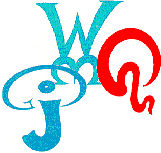Introduction: "Other" Numbers & Functions
|
"...through to Z is for Zebra. I know them all well."
Said Conrad Cornelius o'Donald o'Dell.
"So now I know everything anyone knows.
From beginning to end. From the start to the close.
Because Z is as far as the alphabet goes."
Then he almost fell flat on his face on the floor
when I picked up the chalk and drew one letter more!
A letter he never had dreamed of before!
— Dr. Seuss, On Beyond Zebra
|

|
Most of precalculus, and much of calculus, is concerned with the study of functions of the form:
y = f(x)
There are at least two things that are special (and so, not completely general) about such functions.
- Numbers: These functions describe the relationship between numerical values. The rule f shows how the numerical value of the input variable x uniquely determines the numerical value of the output variable y . In all of the functions that we have considered so far, it has been understood that these numerical values are given by real numbers. The idea that some other sort of numbers be used for specifying the quantities x and y may seem odd to you. You might ask: What other numbers?
- Variables: We have also made some assumptions about the variables themselves, quite apart from the numerical values that we assign to them.
The first assumption concerns the number of variables. Typically, we have been using functions to describe how one input determines one output. And yet there are certainly examples, all around us, where an effect is determined by many causes, or a cause may have many effects.
The second assumption concerns the type of variables. Not all physical quantities are adequately described by a single number. Many things other than numbers serve as both causes and effects in the world we experience. Can mathematics describe these "other" inputs and outputs?
In this lesson we will try to extend our imagination and explore some "other" numbers, "other" variables, and, ultimately, the very idea of "other" sorts of functions. We won't look at any of these new topics in great detail – they are properly subjects for calculus, and beyond. Rather, we'll take a pleasant sight-seeing tour, with the objective of increasing our general awareness of the many new possibilities that lie beyond precalculus. Then, when you encounter these ideas again they'll be familiar, and you'll be ready to begin your explorations in earnest.
